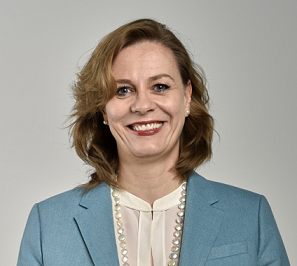International Women’s Day is always an important reminder of our responsibility to support and promote diversity, in all its aspects. This is not a task confined to one day or one event, but an ongoing process in which we must all be engaged. So, what are we doing to reach out and to embed respect for diversity in our work?
Role models matter. That is why, in February this year, to celebrate the International Day of Women and Girls in Science, close to 50 female scientists and engineers working at CERN, the University of Geneva or EPFL visited no fewer than 108 classes in the local area to talk about their jobs. They met around 2400 pupils aged between 7 and 18, receiving an enthusiastic reception wherever they went. This helps to change perceptions, which influence study and career choices. Last November, some 32 women working at CERN contributed to Geneva’s Expanding Your Horizons event, helping to bring science to over 450 girls aged between 11 and 14 in a free one-day event at the University of Geneva. Expanding Your Horizons is a global network promoting science, technology, engineering and mathematics (STEM) with the aim of sparking interest in STEM activities and careers.
CERN, of course, has a particular interest in reaching out to young women. The fraction of female staff at CERN is stable at around 20%, while the fraction of female users has been steadily increasing over the years, and now stands at 18%. About a quarter of CERN fellows are women, reflecting the fraction that apply. This is why we are particularly enthusiastic to engage with schools.
In September 2015, the United Nations and partners launched the International Gender Champions network, and CERN was among the first to sign up. Last week, the network launched its 2017 Annual Report on the website genderchampions.com, where you can see how the network helps to bring about change.
Being part of the network means being committed to supporting its goal of gender equality and, to this end, our gender champion, Fabiola Gianotti, made several commitments. We promised to ensure that women are systematically represented among CERN personnel welcoming high-level visitors to the Laboratory, and to develop actions to encourage girls to take science and technology subjects at school. We have also undertaken to improve gender diversity in CERN’s public image by adjusting the gender balance of photos and graphics used in CERN communications, and ensuring more female speakers at events hosted at the Globe. Starting in 2018, we have also undertaken to host at least one annual event at CERN dealing with an important issue for women’s empowerment in science, engineering and technology.
Initiatives like these matter, because even though we’re making progress towards gender equality in the workplace, there’s still a long way to go. The all-female panel of co-chairs of the WEF annual meeting in Davos this year, of which Fabiola Gianotti was a member, serves to illustrate the point. Although that panel might have been 100% female, attendance at the annual meeting overall was closer to 20% female, and in the upper echelons of business, part of the Davos meeting’s core audience, women represent less than 10%. This matters not only for reasons of equality, but also because studies consistently show that a diverse organisation is a strong organisation.

